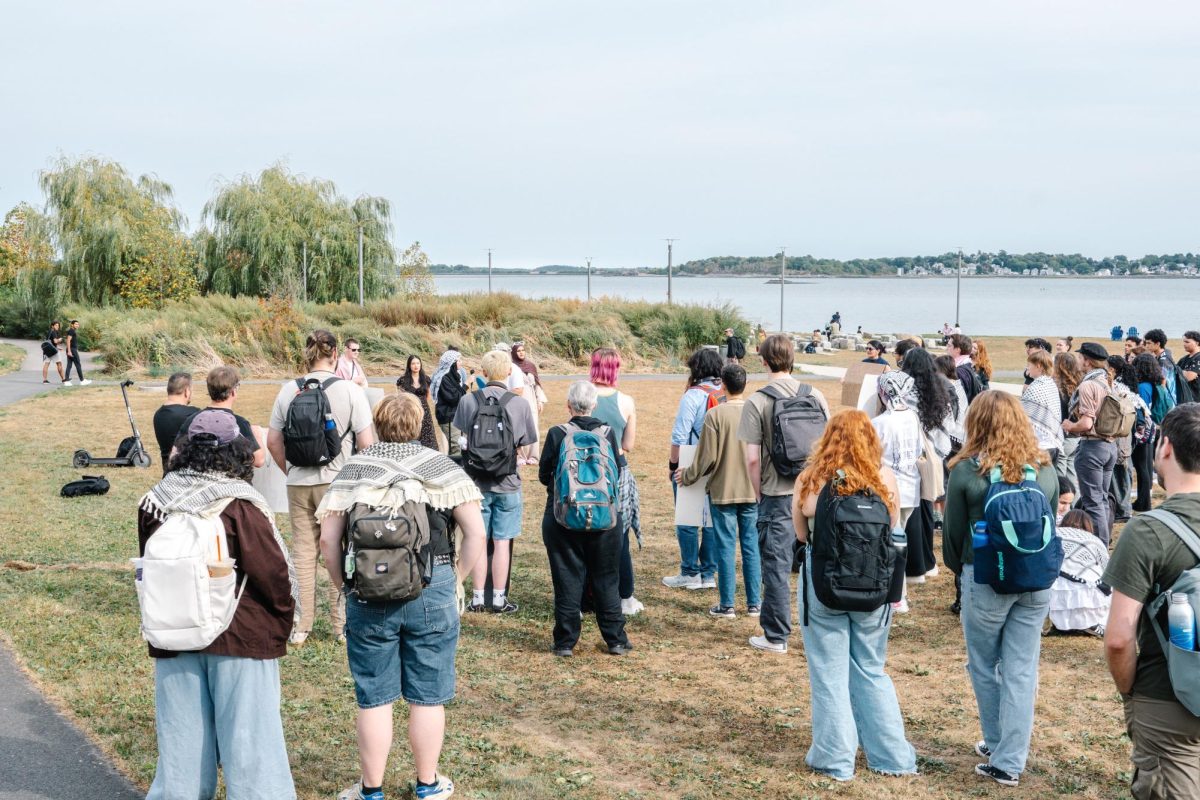Free speech experts raised concerns about some parts of the university’s revised space use policy, which tightens restrictions for on-campus protests, but they say the new rules are mostly constitutional.
Harvey Silverglate, a civil liberties lawyer and co-founder of the Foundation for Individual Rights and Expression, said the policy falls largely within the bounds of the first amendment.
“It was pretty good — I was surprised,” he said. “This was a very lawyerly piece of work.” Silverglate’s legal practice focuses on criminal defense, free speech and academic freedom. He sits on the board of directors at FIRE and has taught at UMass Boston and Harvard Law School.
Another attorney, Gregory Sullivan, the president of the New England First Amendment Coalition who practices media law in Massachusetts and New Hampshire, also said the policy is mostly reasonable.
The policy prohibits protests outside four “public assembly locations,” except for “marches, parades and processions,” which are allowed on roadways and sidewalks. This restriction drew criticism from activists and union organizers, but Silverglate said it is likely legal, though inconvenient for protestors. “I think it’s constitutional, but it’s a close question,” he said.
It also requires organizers to notify the university of planned demonstrations at least five days in advance, with exceptions for demonstrations concerning events that have occurred within the past 24 hours.
Silverglate said that provision is controversial. “I think that it’s probably constitutional because it gives the, for example, campus police the idea that maybe they should have a couple of cops out there just in case there’s a disruption, either by the protesters or by the counter protesters,” he said.
“It’s not the imposition of an onerous obligation. I think it’s usually unnecessary, but that doesn’t mean that it’s unconstitutional,” Silverglate said.
The U.S. Supreme Court established a three-pronged test to determine whether limits on speech are permissible under the first amendment. “Restrictions of this kind are valid provided that they are justified without reference to the content of the regulated speech, that they are narrowly tailored to serve a significant governmental interest, and that they leave open ample alternative channels for communication of the information,” Justice Byron White wrote for the majority in a 1983 decision, Clark v. Community for Creative Nonviolence.
That test remains the law, according to Silverglate. “The standard on free speech, unlike other areas of civil liberties law, has not changed over the decades. It has been consistent, through liberal Supreme Courts and conservative Supreme Courts, and the principles of time, place and manner persist,” he said.
Some parts of the policy extend beyond those legal limits, however, including the section that requires organizers and participants to pay for “expenses resulting from protest or demonstration, including custodial services, traffic control, grounds maintenance, and event services arrangements.” The same section assigns campus police costs to organizers in case of counter-protests, “whether or not such staffing support has been agreed to in advance.”
Sullivan said this requirement is unreasonable. “That’s not what I would call free speech,” he said.
Silverglate felt similarly. “It imposes basically an unlimited financial obligation on protesting, and it’s determined 100% by the university’s decision as to how many people and how many campus police they have to put on duty,” he explained. “It’s basically a tax on demonstrating, and I think that’s improper and unconstitutional.”
The policy also regulates the content of chalk drawings beyond what legal precedent supports. “Chalking that contains hate-oriented language or a similar remark is not permitted and will be removed immediately. Violators will be held to the Student Code of Conduct,” the policy states.
According to Silverglate, that restriction is unconstitutional. “That hate speech is 100% constitutionally protected,” he said. “Hate speech has the same status as love speech.” The court has recognized exceptions to the first amendment for physical threats, but hate speech alone is not subject to regulation.
The policy also sets a noise limit of 70 decibels, as measured from the edge of the reserved area. According to the Yale University Environmental Health and Safety website, a vacuum cleaner is typically about 75 decibels. The Mass Media observed sound levels in excess of 80 decibels on the upper level of Campus Center at 3 p.m. Sept. 17.
Sullivan said that restriction may be unreasonable, and therefore not allowable. “Time, place and manner restrictions are allowed so long as they are reasonable,” he said. “You get 100 people shouting, ‘When do we want it? We want it now!’ — Got to be more than a normal vacuum cleaner.”
The previous version of the policy, updated in 2017, stated that the university may not deny otherwise legal fliers and signs because of their content. The revised policy includes no such statement — an omission Silverglate said is a weakness. “The constitution and the case law requires content neutrality. All points of view have to be equally treated,” he said.
Sullivan said the constitution already prohibits the university from censoring speech based on its content, making the statement unnecessary. “The omission of that statement, to me, doesn’t mean that it’s giving the university the right to wrongfully remove content,” he said.
Silverglate encouraged moderation from university officials. “Administrations, if they’re wise, would err on the side of allowing academic freedom to flower,” Silverglate said. “If it’s a close question, they should opt in favor of free speech rather than in favor of good order.”




